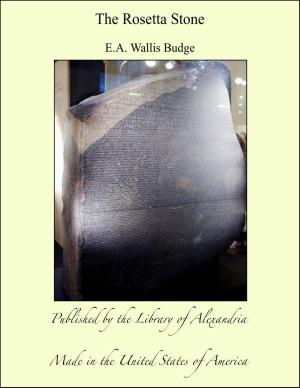| Author: | Hutchins Hapgood | ISBN: | 9781465556608 |
| Publisher: | Library of Alexandria | Publication: | July 29, 2009 |
| Imprint: | Library of Alexandria | Language: | English |
| Author: | Hutchins Hapgood |
| ISBN: | 9781465556608 |
| Publisher: | Library of Alexandria |
| Publication: | July 29, 2009 |
| Imprint: | Library of Alexandria |
| Language: | English |
School and Factory When I first met the heroine of this tale, Marie, she was twenty-three years old, yet had lived enough for a woman of more than twice her age; indeed, few women of any age ever acquire the amount of mental experience possessed by this factory hand and servant girl. She had more completely translated her life into terms of thought than any other woman of my acquaintance. She had been deeply helped to do this by a man of strange character, with whom she lived. She had also been deeply helped by vice and misery. The intensity of her nature showed in her anæmic body and her large eyes, dark and glowing, but more than all in the way she had of making everything her own, no matter from what source it came. Everything she said, or wrote, or did, all fitted into her personality, had one note, her note. But perhaps the most intense quality of all was—and is—this never-failing though gracefully manifested energy, resulting in unity of character and temperament in expression. To keep everything in tone is a quality of art; it is also a sign of great, though not always obvious, energy. Marie was born in a Chicago slum in 1884. Her mother, half French and half German, was endowed with cruelty truly international. Her father was a drunken machinist of German extraction, generally out of a job. Both the parents beat the little girl, the mother because she was cruel, the father because he was a beast. Her earliest memories are connected with the smoky streets of the West Side. The smell of the Stock Yards suggests her youth to her, as the smell of walnuts brings back to the more fortunate country man the rich beauty of a natural childhood. The beatings she received from her parents and the joy of her escape to the street—these are the strongest impressions derived from her tender years. To her the street was paradise; her home, hell. She knew that when she returned to the house she would find a mother half crazy with poverty and unhappiness and a father half crazy with drink; and that, if for no other reason than for diversion and relief, they would beat her. The authorities finally succeeded in forcing the little girl's parents to send her to school, where she remained only two years. She was not quite ten years old at the time, and the memories she has of her school life are only a trifle less unpleasant than those of her home. The last day in school especially lives in her recollection; and she thus described it in a letter to me
School and Factory When I first met the heroine of this tale, Marie, she was twenty-three years old, yet had lived enough for a woman of more than twice her age; indeed, few women of any age ever acquire the amount of mental experience possessed by this factory hand and servant girl. She had more completely translated her life into terms of thought than any other woman of my acquaintance. She had been deeply helped to do this by a man of strange character, with whom she lived. She had also been deeply helped by vice and misery. The intensity of her nature showed in her anæmic body and her large eyes, dark and glowing, but more than all in the way she had of making everything her own, no matter from what source it came. Everything she said, or wrote, or did, all fitted into her personality, had one note, her note. But perhaps the most intense quality of all was—and is—this never-failing though gracefully manifested energy, resulting in unity of character and temperament in expression. To keep everything in tone is a quality of art; it is also a sign of great, though not always obvious, energy. Marie was born in a Chicago slum in 1884. Her mother, half French and half German, was endowed with cruelty truly international. Her father was a drunken machinist of German extraction, generally out of a job. Both the parents beat the little girl, the mother because she was cruel, the father because he was a beast. Her earliest memories are connected with the smoky streets of the West Side. The smell of the Stock Yards suggests her youth to her, as the smell of walnuts brings back to the more fortunate country man the rich beauty of a natural childhood. The beatings she received from her parents and the joy of her escape to the street—these are the strongest impressions derived from her tender years. To her the street was paradise; her home, hell. She knew that when she returned to the house she would find a mother half crazy with poverty and unhappiness and a father half crazy with drink; and that, if for no other reason than for diversion and relief, they would beat her. The authorities finally succeeded in forcing the little girl's parents to send her to school, where she remained only two years. She was not quite ten years old at the time, and the memories she has of her school life are only a trifle less unpleasant than those of her home. The last day in school especially lives in her recollection; and she thus described it in a letter to me















